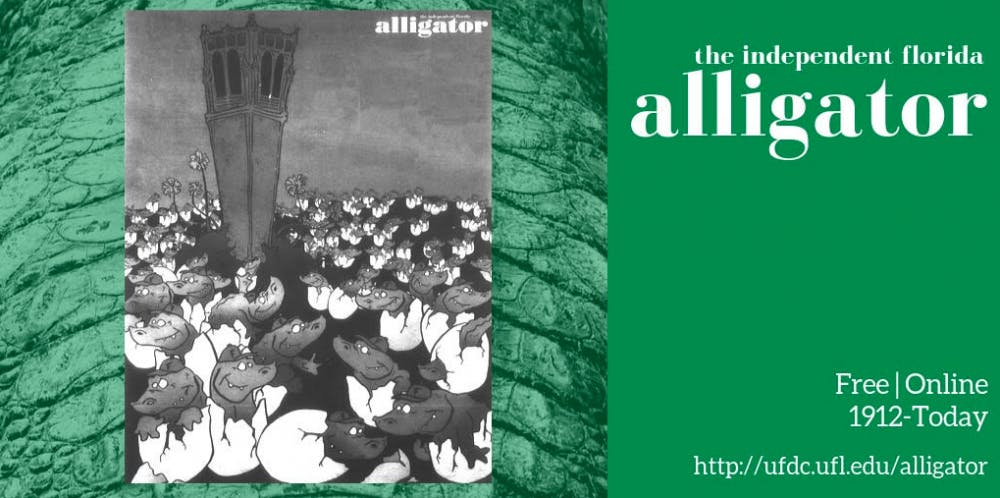You can now read the words of UF student journalists dating back to 1912.
Starting today, every copy of The Independent Florida Alligator will be accessible online after UF’s George A. Smathers Libraries worked to digitize archives. All editions of The Independent Florida Alligator from 1912 to present day can be found at ufdc.ufl.edu/alligator.
The project to digitally archive every Alligator newspaper began in September 2017. It was funded by an endowment to create and acquire materials for the library, said Patrick Reakes, senior associate dean for scholarly resources and services and project director. The digitization cost $40,000.
To access the newspapers before, people had to sort through bound paper folios or rolls of film, he said. Looking for specific papers could take hours.
“What we wanted was wide open access, it’s freely available to anyone, anywhere,” he said.
He said old copies of The Alligator are thought to be the most requested title at the library. Project coordinator Melissa Jerome agreed.
“Most people, of course, assume that everything is digitized,” Jerome said. “It’s always been, I would say, a dream of the library to try and get that digitized.”
In 2005, the libraries began working with the newspaper’s staff to digitize papers from that point on, Jerome said.
But it left those looking for editions prior to 2005 out of luck.
A researcher from UCLA once flew to Gainesville just to look at older copies of The Alligator, Jerome said. By digitizing the papers, students, researchers and alumni will have easy access to it.
Jerome and a team of two student assistants looked through every newspaper reel.
The team began by collecting all the microfilm, which are scaled down reproductions of documents, from 1912 to 2004, making it inaccessible to the public. Each reel of microfilm contained approximately 500 to 1,000 pages, equalling out to about 140,000 pages total. Jerome and the student assistants collected data from each page and did quality review checks.
“All the content we digitize is text searchable, which is something the former editors of The Alligator were super thrilled about,” Jerome said.
Amanda Rosa, the editor-in-chief of The Alligator, was a sophomore during her first semester at the paper when the project started. She said she believes the digitization of the papers will be a great resource to the staff of the paper for archival work.
Journalism is the first draft of history, and this project allows this history to be easily accessed, she said.
“You’re able to essentially go back in time and read exactly what students in 1924 were thinking,” Rosa said. “It’s like time traveling without moving.”






